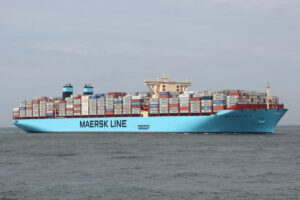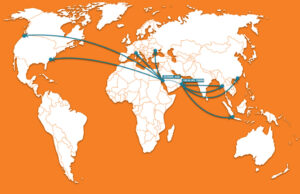Following the announcement of a blockchain pilot in November 2017, shipping company ZIM has tested the first ever paperless Bills-of-Lading platform as a solution for trade activities.
According to ZIM, exploratory transactions have indicated that blockchain technology can not only replace paper but also improves current activities which rely on emails and existing tools.
As part of the recent tests, original bill of ladings were transferred to the receiver less than two hours after the vessel’s departure, a process that usually takes days.
Nadia Hewett, WEF, discusses the integration of blockchain into the maritime supply chain in a recent Port Technology technical paper
All of the necessary documentation processes, such as endorsements and ownership transfers, were performed over the blockchain-based platform.
With successful trials now complete, ZIM has announced that it is ready to make the electronic platform available to all of its customers in selected trades.
During the first quarter of 2019, the company plans to focus on the Asia-South Africa and North America-Mediterranean trades, due to their diverse activities and involved players.
Digitizing processes related to shipping documentation is expected to save time and reduce costs for all of the parties involved.
Everybody's talking about blockchain-based bill-of-lading..
ZIM is doing it!
Read more about our Digital b/ls here: https://t.co/ivLVHZwnJf pic.twitter.com/RZWb1z4iP6— ZIMShipping (@ZimShipping) January 15, 2019
In addition to testing the new platform, ZIM has begun talks with other industry stakeholders for the exchange of knowledge and the creation of industry standards.
Eyal Ben-Amram, ZIM CIO, commented: “Having gained considerable experience with this revolutionary technology, we are now moving forward.
“It’s part of our commitment to maximize digitization, and at the same time enhance our customer service levels and nurturing customer relations.”










